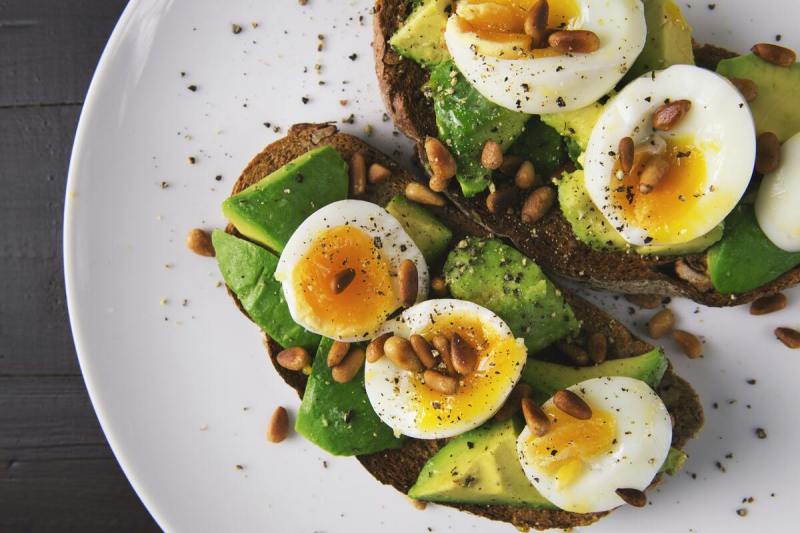Macronutrients are the fundamental components of our diet that provide us with the energy required for daily activities and support various bodily functions. Understanding macronutrients and how to use them to our advantage is crucial for achieving and maintaining optimal health and wellness.
Many more people have been focusing on macronutrients as a new approach to nutrition, examining the basic building blocks of food. Delve into the world of macronutrients, exploring their importance, role in weight loss, and how they can be manipulated to benefit our overall well-being.

What is a macronutrient?
Macronutrients, often referred to as “macros,” are the three essential nutrients that make up the bulk of our diet: protein, carbohydrates, and fat. Each macronutrient serves a unique purpose, contributing to the proper functioning of our body and supporting various physiological processes.
- Protein is essential for building and repairing tissues, as well as for making enzymes and hormones.
- Carbohydrates are the body’s main source of energy. They are broken down into glucose, which is then used by the cells for energy.
- Fat is also a source of energy, but it also plays other important roles in the body, such as helping to absorb vitamins and minerals and protecting the organs.
The specific amount of each macronutrient you need will vary depending on your individual needs, such as your activity level and overall health.

What are macros?
Protein
Protein is a macronutrient composed of amino acids, often described as the building blocks of life. These amino acids play a crucial role in maintaining and repairing tissues, producing enzymes and hormones, and supporting a robust immune system.
Protein is so important that many people have come up with ideas like the high protein diet to focus on consuming more of them. Lots of protein is great, especially for building muscle, but just remember your body needs the other parts of a macro diet too.
Carbohydrates
Carbohydrates are the primary source of energy for the body. When consumed, they are broken down into glucose, which fuels our cells, muscles, and brain. They’re common in grains and starchy foods like potatoes, as well as fruits and vegetables.
While there are simple and complex carbohydrates, both serve a vital function in our diet. However, the type of carbohydrates we consume can impact our blood sugar levels and overall health. Simple sugars, like glucose and sucrose, are usually unhealthy, and you may want to try to cut them out of your diet.
Fat
Fat is often misunderstood as a nutrient that should be avoided, but in reality, it is crucial for several bodily functions. Dietary fat provides essential fatty acids that our bodies cannot produce on their own. They are necessary for brain health, hormone production, and cell membrane structure. Additionally, fat aids in the absorption of fat-soluble vitamins (A, D, E, and K) and contributes to the feeling of satiety after a meal.

What is the difference between a macronutrient and a micronutrient?
While macronutrients are required in large amounts to provide energy, micronutrients are essential in smaller quantities for various physiological processes. Micronutrients include vitamins and minerals, which play essential roles in immune function, bone health, and metabolism. While macronutrients supply energy and serve as the building blocks of our diet, micronutrients are like little helpers, ensuring all bodily functions run smoothly.

What are the macros for weight loss?
When it comes to weight loss, understanding macros is crucial, but it’s essential to recognize that everyone’s nutritional needs are unique. Protein plays a particularly significant role in weight loss due to its satiating effect and its ability to preserve lean muscle mass during calorie restriction. However, both carbohydrates and fats are essential for a balanced diet, and it’s not necessary to eliminate either completely, as some fad diets suggest.
Determining the right macro ratio for weight loss can be complex and may require experimentation to find what works best for each individual. Adopting a “macro diet” approach, where macronutrient intake is tailored to personal goals, can be beneficial. Prioritizing protein and incorporating a balanced mix of carbohydrates and healthy fats can help achieve sustainable weight loss and overall well-being.
How much protein should I eat?
The recommended daily protein intake varies based on factors such as age, activity level, and individual goals. For example, athletes and individuals engaging in intense physical activity may require higher protein intake to support muscle recovery and growth.
Generally, though, the very minimum amount of protein is 0.8 grams per kilogram of your body weight or 0.36 grams per pound. For example, someone weighing 150 pounds should eat, at the very absolute least, 54 grams of protein per day. This is the kind of bare minimum that you can get sick if you fall underneath.
For a more realistic estimate, you can try around 0.8-1 gram per pound, which is about 1.8-2.2 per kilogram. For the same 150-pound person, that’s 120 grams per day. This is a good estimate of the requirements for doing most tasks and getting a reasonable amount of exercise. More exercise? More protein intake.

What happens when you omit one macronutrient from your diet?
Eliminating any macronutrient entirely from your diet can have adverse effects on your health and well-being. Carbohydrates are often the first to be targeted, but doing so can lead to a lack of energy, mental fog, and nutritional deficiencies, as well as constipation and muscle cramps. Fat restriction may lead to inadequate absorption of fat-soluble vitamins and essential fatty acids.
While protein deficiency is less common, it can lead to muscle wasting, impaired immune function, and delayed wound healing. Rather than eliminating any macronutrient, the key to a balanced and healthy diet is moderation and focusing on the right sources of each nutrient.

Which macronutrient gives you the most energy?
Out of the three macronutrients, carbohydrates provide the most energy. When consumed, they are broken down into glucose, which is readily available to fuel our cells and supply energy for physical activities and mental processes. Properly balancing carbohydrate intake is essential for maintaining stable blood sugar levels and avoiding energy crashes.




